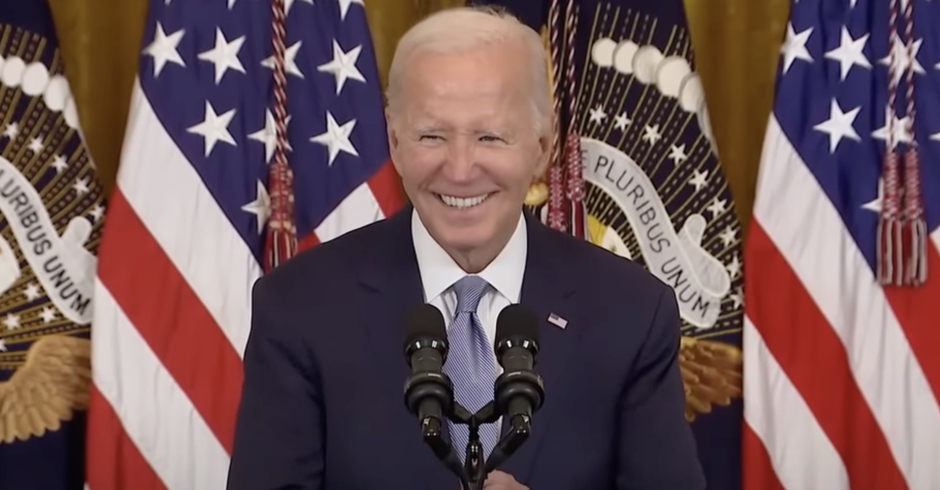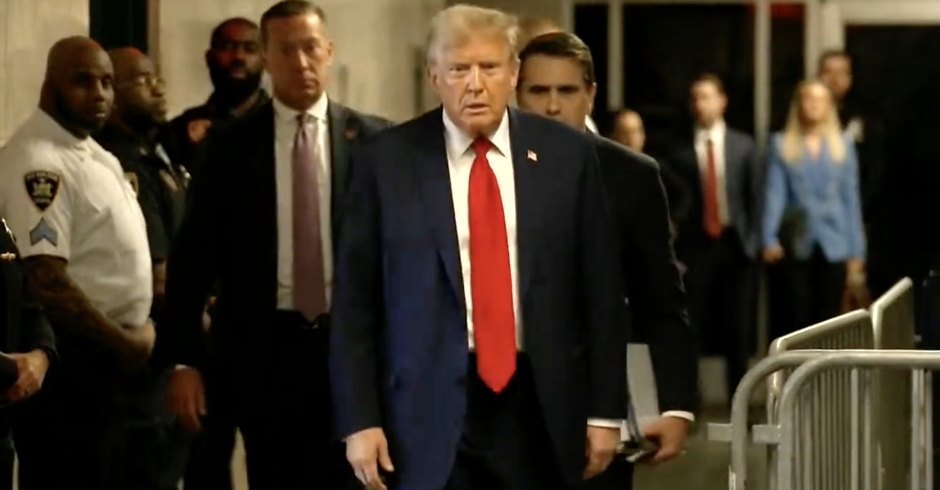Why You Should “Occupy Wall Street” On Thursday
How many more days of inaction by our Congress will it take before more people are outraged enough to join the Occupy Movement? Thursday, on the movement’s two-month anniversary, is the perfect time to be a part of something that is changing the world.
Â
In New York City just past midnight Tuesday morning, hundreds of police officers in riot gear — brandishing truncheons and hurling canisters of tear gas — used their batons and pepper spray to herd unarmed Occupy Wall Street protestors, sometimes brutally dragging screaming activists by their arms and legs in what appeared to be a coordinated nationwide effort to clear Zucotti Park, the largest encampment of the Occupy movement. There were multiple reports of police brutality causing serious injuries, and reports of up to 100 arrests.
https://youtube.com/watch?v=F_g8V_YmFkQ%3Fversion%3D3%26hl%3Den_US
Later in the day, despite a judge issuing a temporary order barring the city from preventing protesters from returning to Zuccotti Park, one policeman actually hurled a man over a barrier, literally throwing him out of the park.
READ:Â Thursday: Occupy Wall Street Massive Day Of Non-Violent Direct Action
The courts eventually sided with Mayor Bloomberg and ruled the protestors could not camp out in the park with tents and tarps.
In Washington, D.C., unwilling to address the issues being protested, members of Congress spent their time voting to change the names of post offices.
“Under the shadow of a potential financial doomsday, House Speaker John Boehner kept his debt plan off the floor on Thursday night,” Fox News reported. “Instead, he turned legislators to the important business of renaming post offices.”
“With all the challenges facing our nation, it is absurd that Congress spends so much time on naming post offices, congratulating sports teams, and celebrating the birthdays of historical figures,” the Fox News piece was forced to note, quoting a September 2010 speech Boehner had made in Washington.
Promising reform, the newly-minted Republican majority established rules preventing resolutions that commend, congratulate, or celebrate an “entity, event, group, individual, institution, team, or government program.”
“We’re pretty well committed to the House doing substantive work,” Boehner said in May. “All of the commemorative resolutions that used to be brought to the floor of the House, some of them, I thought were quite meaningless.”
Missing from that list of once-common suspension bills is a ban against renaming post offices.
http://cdnapi.kaltura.com/index.php/kwidget/wid/0_utlspxw2/uiconf_id/5590821
How many more days of inaction by our Congress will it take before more people are outraged enough to join the Occupy Movement?
Dan Siegel, legal advisor to Oakland Mayor Jean Quan, resigned early Monday morning after Occupy
Oakland’s camp at Frank H. Ogawa Plaza was closed and dismantled, its tents torn down by police in riot gear. Siegel thinks that Mayor Quan allowed herself to be “pushed to do something that is really contrary to her own values and political instincts.”
Â
https://youtube.com/watch?v=2wdFg-Us_xc%3Fversion%3D3%26hl%3Den_US
How many more instances of police brutality and how many more injured protestors will it take before other advisors resign in protest?
On Thursday, in coordination with labor unions, an Occupy Wall Street “National Day of Action†is
planned – Occupy Wall Street hopes to delay the opening of The New York Stock
Exchange.
An e-mail sent by The New Bottom Line, a group which has allied itself with the Occupy Movement, quoted an Occupy Wall Street blogger who wrote Tuesday morning in the wake of the raid, “This moment is nothing short of America rediscovering the strength we hold when we come together as citizens to take action to address crises that impact us all.â€
The email continued, “In the face of these challenges, we need to remind Mayor Bloomberg and the entire 1% that there are tens of millions of us and that we will not be silenced or evicted.
Here are some ways that you can take action, even if you can’t make it to Zucotti
Park Thursday, November 17:
New York and similar raids in Oakland, California, and other cities are evidence of our government
officials siding with corporations. We echo Occupy Wall Street in saying, “You can’t evict an idea whose time has come.”
And after “A National Day of Action�
As World War I ended, Gandhi, the iconic pioneer of mass civil disobedience, began to focus on the fight for Indian self-rule. In 1919, the British gave Gandhi something specific to fight against — the Rowlatt Act, which gave the British in India nearly free-reign to root out “revolutionary” elements and to detain them indefinitely without trial. In response, Gandhi organized a hartal (general strike), which began on March 30, 1919. Unfortunately, such a large scale protest quickly got out of hand and in many places it turned violent.
A scene from Gandhi, the 1982 film directed by Richard Attenborough, depicts the meeting that led to the call for a General Strike:
PATEL: [To Jawaharlal Nehru, the first Prime Minister of India ] I must say, Panditji,  it seems to me it’s gone beyond remedies like passive resistance.
GANDHI If I may – I, for one, have never advocated passive anything.
I am with Mr Jinnah. We must never submit to such laws – ever. And I think our resistance must be active and provocative.
AZAD : And what “resistance”
would you offer?GANDHI: … I want to call on the nation to make that a day of prayer and fasting.
JINNAH: You mean a general strike?
GANDHI : I mean a day of prayer and fasting. But of course no work could be done – no buses, no trains, no factories, no administration. The country would stop.
PATEL: My God, it would terrify them . . .
AZAD (a wry smile): Three hundred fifty million people at prayer. Even the …
newspapers would have to report that. And explain why.KRIPALANI : But could we get people to do it?
A Wikipedia article lists some notable general strikes:
The largest general strike that ever stopped the economy of an advanced industrial country – and the first general wildcat strike in history – was May 1968 in France.The prolonged strike involved eleven million workers for two weeks in a row and its impact was such that it almost caused the collapse of the de Gaulle government. Other notable general strikes include:
- 494 BC – The Aventine Secession, Ancient Rome, creating the Tribune of the Plebs
- 449 BC – A secessio plebis leading to the adoption of the Twelve Tables
- 287 BC – A secessio plebis leading to the adoption of the Lex Hortensia
- 1842 – 1842 General Strike, Great Britain
- 1886 – Walloon jacquerie of 1886 Wallonia
- 1893 – Belgian general strike of 1893 Belgium Wallonia
- 1902 – Geneva General Strike of 1902, Switzerland
- 1905 – The Great October Strike, Russia
- 1907 – Geneva General Strike of 1907, Switzerland
- 1907 – New Orleans Levee General Strike, United States
- 1909 – Swedish General Strike
- 1909 – Uprising of the 20,000
- 1912 – Brisbane General Strike, Australia
- 1912 – Zurich General Strike of 1912, Switzerland
- 1917 – Australian General Strike
- 1917 – Brazilian General Strike
- 1917 – Spanish General Strike
- 1918 – Swiss General Strike
- 1919 – Barcelona General Strike, Spain
- 1919 – Winnipeg General Strike, Canada
- 1919 – Seattle General Strike, US
- 1919 – General Strike in Basel and Zurich 1919, Switzerland
- 1920 – German Kapp Putsch Strike
- 1922 – Italian General Strike
- 1920 – German passive resistance strikes at the Ruhr
- 1926 – UK General Strike of 1926
- 1933 – French general strike of 1933
- 1932 – Geneva General Strike of 1932, Switzerland
- 1934 – West Coast Longshoremen’s Strike, US
- 1934 – Minneapolis Teamsters Strike, US
- 1934 – Toledo Auto-Lite Strike, US
- 1936 – Palestinian general strike
- 1936 – French general strike of 1936
- 1936 – Syrian General Strike
- 1941 – February Strike, Netherlands
- 1942 – Luxembourgian General Strike
- 1946 – Indian General Strike
- 1946 – Oakland, California General Strike
- 1950 – Austrian General Strikes
- 1950 – General strike against Leopold III of Belgium
- 1953 – Hartal 1953, Ceylon
- 1954 – General strike of 1954, Honduras
- 1956 – Finnish General Strike
- 1960 – 1960-1961 Winter General Strike in Wallonia
- 1968 – French General Strike
- 1973 – Uruguayan General Strike
- 1974 – Ulster Workers Council Strike, Northern Ireland.
- 1984 – Uruguayan General Strike
- 1988 – Spanish General Strike
- 1989 – 2-hour general strike of all citizens of Czechoslovakia during the Velvet Revolution
- 1992 – Nepalese General Strike
- 1995 – French Public Sector Strikes
- 1995 – Days of Action, Canada
- 2000 – Cochabamba General Strike, Bolivia
- 2002 – Italian General Strike
- 2005 – Bolivian Gas Conflict
- 2006 – April 2006 Nepalese general strike
- 2007 – Guinea General Strike
- 2009 – French Caribbean General Strikes
- 2010 – Spanish General Strike
- 2011 – Oakland, California General Strike in coordination with Occupy Oakland
After Occupy Oakland’s General Strike on November 2, Michael Berkowitz wrote in the Huffington Post, “By any measure, Occupy Oakland’s General Strike on Wednesday was a huge success. It was huge in that media estimates that between 7 and 10,000 protestors participated. And successful in tone and deed, a sometimes serious, sometimes festive exercise in shining a light on what has happened to our country… culminating in shutting down the nation’s 5th largest port, the Port
of Oakland.
“Much like San Francisco’s General Strike of 1934, which was called after two workers were killed by police, Oakland’s General Strike was called after two tour of duty marine Scott Olsen’s skull was
fractured by police. Coincidentally, the third worker injured in 1934’s Bloody Thursday, the one who survived, was also named Olsen.â€
If the police brutality increases with incensed officers wielding batons and hurling canisters of tear gas; using pepper spray and firing rubber bullets as peaceful protestors continue to be arrested and injured, a fatality is likely to occur. And someone will probably call for another general strike.
“But could we get people to do it?”
Gandhi’s “Day of Prayer and Fasting†in our sputtering economy would be difficult to pull off; many people simply cannot afford to take the day off work. It would certainly require more planning to mobilize millions than the few days notice that brought out 7-10,000 people in Oakland.
According to SFGate.com, the population of Oakland now stands at 390,724. It took a great deal less than “the 99%” to make quite an impact.
The US Census Bureau puts our population at 312,617,429. A proportunate turnout would yield 5,600,685 – 8,000,978 protestors.
But there are actions that people who did not take off work or participate in a general strike or even an organized event could take that would make an impact.
Can’t or choose not to take off work – pack a lunch instead of going out or if you must eat out, patronize a small, local restaurant or a food truck; drink coffee at home or go to a local coffee shop. Can’t bicycle or use public transport that day – make sure that you gas up the day before. Stock up
on groceries and if you must get the kids milk, patronize a Mom and Pop store, not a supermarket chain. Traveling for business or vacation – plan your trip so you don’t have to fly that day… you get the idea. And so will your representatives.
There are two things that politicians understand – money and votes. That is why according to the New York Times, “It has been a record year for new legislation designed to make it harder for Democrats to vote — 19 laws and two executive actions in 14 states dominated by Republicans, according to a new study by the Brennan Center for Justice. As a result, more than five million eligible voters will have a harder time participating in the 2012 election.â€
In order for the Occupy and our New Civil Rights Movements to succeed we must occupy the streets today and occupy the voting booths next November.
Â
https://youtube.com/watch?v=Sj66DB_PKz0%3Fversion%3D3%26hl%3Den_US
Â

Stuart Wilber. Photo by Mathew Ryan Williams
Â
Stuart Wilber believes that living life openly as a Gay, Lesbian, Bisexual, Transgender or Allied person is the most powerful kind of activism. Shortly after meeting his partner in Chicago in 1977, he opened a gallery named In a Plain Brown Wrapper, where he exhibited cutting edge work by leading artists; art that dealt with sexuality and gender identification. In the late 1980’s when they moved to San Clemente, CA in Orange County, life as an openly gay couple became a political act. They moved to Seattle 16 years ago and married in Canada a few weeks after British Columbia legalized same-sex marriage. Although legally married in some countries, they are only considered domestic partners in Washington State. Â Equality continues to elude him.

Enjoy this piece?
… then let us make a small request. The New Civil Rights Movement depends on readers like you to meet our ongoing expenses and continue producing quality progressive journalism. Three Silicon Valley giants consume 70 percent of all online advertising dollars, so we need your help to continue doing what we do.
NCRM is independent. You won’t find mainstream media bias here. From unflinching coverage of religious extremism, to spotlighting efforts to roll back our rights, NCRM continues to speak truth to power. America needs independent voices like NCRM to be sure no one is forgotten.
Every reader contribution, whatever the amount, makes a tremendous difference. Help ensure NCRM remains independent long into the future. Support progressive journalism with a one-time contribution to NCRM, or click here to become a subscriber. Thank you. Click here to donate by check.
 |























